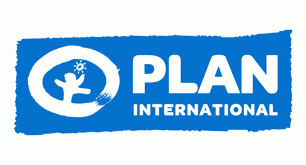Anega Energies Manufacturing - Plan International Ethiopia
_0.jpg)
About
The Anega Energies Manufacturing – Plan International Ethiopia partnership is transforming cooking practices in Ethiopia by introducing efficient and sustainable clean cooking technologies. The partnership will enhance its manufacturing, expand distribution and rigorously measure outcomes like adoption rates, emission reduction and health improvements.
Investing in Impact
P4G has awarded the partnership around US $243,000 in grant funding.
Ethiopia's heavy reliance on solid fuels like wood, charcoal and crop residues for cooking and heating creates severe environmental and health issues. Traditional methods contribute to deforestation, indoor air pollution and over 60,000 preventable deaths annually, disproportionately affecting women and children. With 90% of the population affected, an estimated 25 million households urgently need cleaner cooking solutions.
Anega Energies Manufacturing (AEM) – Plan International Ethiopia seeks to address this crisis by providing affordable and efficient clean cooking technologies. The partnership will implement an integrated model of clean cookstoves, fuel pellets and biochar recycling, which began with a successful pilot in Addis Ababa.
This system features the Quayton cookstove, a locally manufactured, fan-forced stove designed for efficiency and can be powered by rechargeable batteries compatible with wall outlets and solar panels. The fuel pellets, made from waste materials like coffee grounds and sawdust, provide a clean, high-energy solution with minimal emissions.
The products are distributed through a network of local distributors, community organizations and direct sales efforts, ensuring wide accessibility across both urban and rural areas. Moreover, the stove produces biochar as a byproduct, which users are encouraged to return through AEM’s biochar buyback program. This biochar is repurposed as a soil enhancer, improving agricultural yields and supporting carbon sequestration, creating a circular economy that benefits both the environment and local communities.
Recognized globally for its grassroots innovation, AEM was named one of the United Nations Development Programme’s (UNDP’s) six best grassroot energy companies for its clean energy solutions.
Central to AEM’s mission is empowering women in the energy sector. By involving women throughout the value chain—from production to distribution— AEM will economic opportunities and championing gender equality. Women comprise 35% of management, 40% of the workforce and 33% of ownership at AEM. AEM also engages unemployed and disadvantaged youth in waste biomass collection, pre-processing and distribution, equipping them with skills for green jobs.
During the partnership period, AEM aims to convert 20,000 households to clean cooking technologies. The partnership also seeks to boost local economies by creating jobs and economic opportunities through local manufacturing, distribution and biomass collection. Furthermore, it will work to reduce household reliance on solid fuels, lower household fuel costs, cut deforestation and improve indoor air quality. To ensure widespread adoption, it will conduct community campaigns to educate people about the benefits of clean cooking technologies.
Plan International Ethiopia will help develop a green business model that includes disadvantaged and unemployed youth in waste biomass collection and pre-processing for fuel pellet production. Plan International Ethiopia will also collaborate with AEM on marketing, community engagement and policy advocacy to enhance the acceleration and accessibility of clean cooking solutions. Plan International Ethiopia’s extensive expertise in development and humanitarian work ensures that the partnership delivers measurable and sustainable results, both locally and nationally.
To date, Anega has formed strategic partnerships with vocational training colleges and GIZ Ethiopia to support school-feeding operations. Pilot production began with 300 charcoal stoves, 35 institutional cookstoves and 2 tons of pellets manufactured in early stages. Institutional stove production scaled significantly, reaching 100 units, with 13 already installed in Addis Ababa schools benefiting over 15,6000 students through clean‑cooking school‑feeding programs. Pellet production reached 5 tons, intentionally synchronized with school deployment cycles due to limited storage. Anega also launched its first retail line of household stoves, selling over 800 units in Addis Ababa.
Anega also secured three kiosk locations for future sales and visibility and showcased its products at African Climate Summit 2. Distribution planning progressed for expansion beyond Addis Ababa into Dire Dawa and Bahir Dar. The startup is also developing an app to capture kitchen performance data, streamline monitoring and support future carbon-credit frameworks. The partnership began collecting user feedback from cooks and Savings and Credit Cooperatives (SACCO) operators, and plans to include these insights as a digital M&E dashboard on the app.
The partnership produced a Geographic Information System (GIS) based model estimating the national co-benefits of clean cooking and developed a policy and regulatory guidance brief to inform government planning. A public awareness campaign through the Ethiopian news outlet The Reporter highlighted the economic, health and environmental impacts of traditional fuels.
The partnership comprises the following partners: Anega Energies Manufacturing (lead business partner); Plan International Ethiopia (lead administrative partner).



